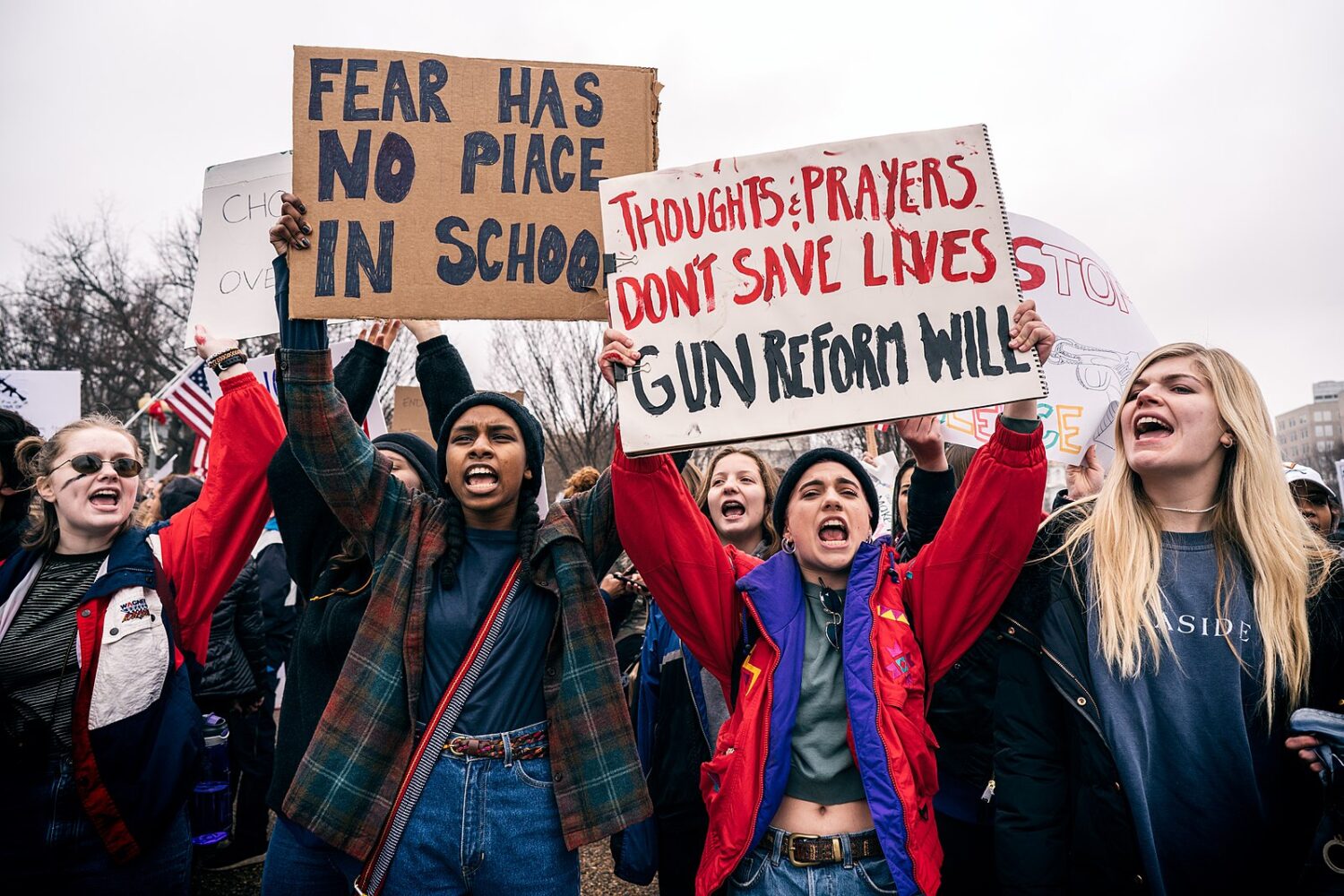According to a recent survey of 2,631 individuals aged 18 to 29 conducted by the Harvard Public Opinion Project, millennials broadly support gun control policy. Of those surveyed, 72.5 percent disapproved of Trump’s handling of gun violence in America, and 64.3 percent thought gun control laws should be made stricter. Of those who will likely vote, 70.1 percent supported stricter gun control laws. As millennials become a greater proportion of the electorate, the NRA and other opponents of gun control policy may have more difficulty attaining their political goals because they have failed to diversify their support base across age groups and demographics.
Support for stricter gun laws spans all racial demographics, sexes, and education levels. Blacks show more support than whites for stricter gun laws, with support levels at 75.7 percent and 57.6 percent, respectively. Women are more supportive of such laws than men with support at 69.5 percent and 59.1 percent respectively. Those who have completed or begun tertiary education also support these laws more than those who did not, with 76.6 percent of college graduates in favor of stricter gun laws in comparison to 72.5 percent of college students and 56.6 percent of those with no tertiary education.
Still, support for gun control does break down across party lines. Only 37.4 percent of self-identified Republicans are in favor of stricter gun laws compared to 85 percent of Democrats. Partisan divisions on gun control therefore persist despite the passage of some gun control legislation by Republican governors in Florida and Vermont. In addition, 71.1 percent of independents support stronger gun laws, signaling that political parties may need to run pro-gun control candidates in competitive districts this midterm season to pick up unaligned voters.
Millennials will likely also base their votes in the 2018 midterm elections in large part on gun control policy; 77.4 percent of respondents ranked gun control as being an “important” criterion or “the most important” criterion in determining their vote. Likewise, very few millennials do not feel strongly about gun control, as only 4 percent of Democrats and 5.7 percent of Republicans said that it is “not at all important” in determining their vote.
Nonetheless, the salience of the gun control issue differs among racial groups. Even though most of the recent media attention has focused on shootings that primarily affected white people, such as those in Las Vegas and Parkland, blacks cared about gun control the most: 45.6 percent of black respondents declare gun control to be their most important issue while only 18.7 percent of white respondents said the same.
Despite millennials’ support for gun control legislation and passion about the issue, they still have mixed attitudes on the effectiveness of pro-gun control protests in the wake of Parkland. Millennials’ views on the ultimate success of these protests are nearly evenly divided, with 46.6 people believing the Parkland protests will have a lasting impact while 50.5 percent think otherwise. These opinions are divided along partisan lines, with 62.4 percent of Democrats believing lasting change will occur while 70.9 percent of Republicans saying otherwise. Millennials’ cynicism regarding the effectiveness of these protests reflects the success of the gun lobby in stymying gun control in the past decades.
In regards to specific policies, there is wide support for an assault weapons ban, and support for directly amending the Second Amendment is slightly lower. 57.7 percent of respondents voice some degree of support for an assault weapons ban while 46.9 percent support amending the Second Amendment. An overwhelming 76.5 percent of Democrats support an assault weapons ban, and, in a surprising deviation from the party platform, so do as many as 42.7 percent of Republicans. For independents, 48.1 percent were in favor and 30.1 percent opposed to an assault weapons ban.
Millennial opinions also indicate strongly unfavorable attitudes towards the NRA, which could be possible evidence of a pending demographic disaster that will hamper the organization’s attempts to win over new members. The NRA has been at the forefront of gun rights lobbying and legislative efforts for several decades and has been no stranger to controversy as a result of its activities. Overall, a total of 62.7 percent of likely voters express unfavorable views of the NRA. Furthermore, the NRA’s failure to adapt to demographic changes, having selected a board of directors composed of 93 percent white individuals, including the outspoken Ted Nugent, is reflected by non-white perceptions of the organization. More than half of all self-identified racial minorities hold unfavorable views of the NRA compared to 45.9 percent of whites. Among political groups, only Republicans hold favorable attitudes towards the NRA, with 66.6 percent in favor.
Respondents’ answers on gun ownership followed national demographics. Regarding individual ownership, men are about twice as likely as women to own guns, at 22.8 percent to 11.5 percent. When gun ownership is assessed along racial lines, whites are the most likely to own a gun at 22.5 percent, followed by blacks at 13.8 percent, Hispanics at 9.5 percent, and Asians at only 3 percent. Only 10.8 percent of Democrats admit to owning a gun compared to 33.2 percent of Republicans. Among millennials, most gun owners are white conservative men, the same audience typically associated with the gun-owning community and the NRA.
HPOP data shows gun control advocates that a broad coalition for gun control consisting of millennials may be forming. With time, stronger gun control laws may be passed on the state level, especially if Democrats perform well in the 2018 midterms.
Gun rights advocates may seek to increase their already exorbitant lobbying expenses to prevent this outcome. Alternatively, they could also diversify their support base, rebrand their image, or retouch their policies to avoid their continued vilification among a growing voting bloc. Without making any of these changes, however, they might be unable to maintain their primacy in the gun rights arena.
Wikipedia Commons/Lorie Shaull



